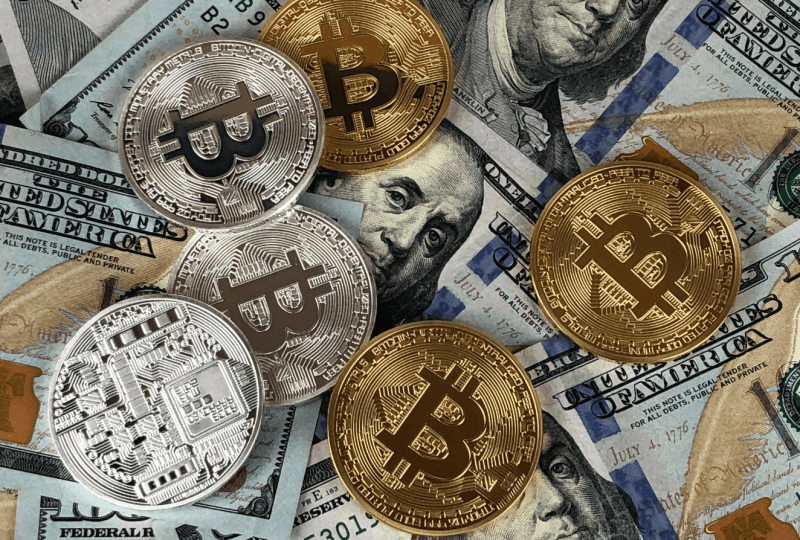China is Pushing Money out of the United States with Bitcoin
June 23, 2021

Instead of declaring war on cryptocurrency, Chinese authorities appear to be putting things in order to further weaken the U.S. economy.
The trade war between the US and China is already in its fourth year. Former US President Donald Trump found different results than he anticipated: America has been hurt by increased tariffs and sanctions against Chinese industries, and hasn't reaped the same benefits. It has resulted in the loss of up to 245,000 jobs in the country. According to the US Chamber of Commerce, the scenario puts each state's exports in danger. The cost of damage to Florida's exports, for example, has already surpassed $1.9 billion.
At the same time, China was pursuing a more calculated strategy, imposing reciprocal penalties and exporting its goods through intermediary nations (Vietnam, Taiwan, and Mexico), as well as making the US pay for unsecured and poorly controlled assets — cryptocurrency.
Hidden billions
Without even realizing it, the US pumps billions of dollars into China's economy every year. The reason for this is that China mines the majority of Bitcoin (BTC), which is mostly traded for US dollars around the world. It is home to 65 percent of the world's mining farms.
Powerful computers solve complicated arithmetic problems 24 hours a day, seven days a week to earn Bitcoin rewards. Part of the newly mined coins is sent directly to crypto exchanges, while the rest is retained in miners' crypto wallets before being sold for dollars. Every day, roughly 900 BTC are mined, generating about $31 million in revenue (as of the end of June). That implies the miners have made almost $10 billion in just a year.
Local miners have earned nearly $7 billion since last summer when China's portion of mining farms is taken into consideration. If the price of Bitcoin and its popularity continues to rise, annual revenue will double or even triple. The money will circulate throughout the country's economy in some form or another: it will be spent, saved, or invested.
Under the Party’s control
The Chinese government is well aware of the volume and significance of U.S. dollar investments through cryptocurrencies. Despite the increased regulation, it is clear that the government will not outlaw Bitcoin.
In 2013, China imposed restrictions on crypto transactions for banks and payment companies. Local crypto exchanges were also shut down in 2017 and access to overseas platforms was prohibited. Locals, on the other hand, could lawfully hold cryptocurrency at any moment. What we see now is essentially a reminder of the previous restrictions imposed on financial institutions instead of the introduction of new ones. On the one hand, the Chinese government wants to prevent the "transmission of individual risks to the social field," while on the other, they keep the door wide open for foreign investment.
At the same time, the Chinese government has chosen to restrict mining, which has alarmed many market participants. Excessive energy usage and carbon dioxide emissions are the official reasons for the country's failure to achieve carbon neutrality by 2060. However, the actual situation differs from official claims.
First, Chinese miners currently use cheaper hydroelectricity, which is abundant in southern provinces, and only use fossil-based fuel during the dry winter season when they go north.
Second, the authorities have outright banned all new and current mining projects in three provinces: Qinghai, Inner Mongolia, and Xinjiang. Other provinces with abundant hydropower resources, such as Yunnan and Sichuan, are not in a rush to implement a complete ban. While Yunnan had planned to shut down only illegal BTC mining farms as part of a "campaign against electricity overuse," it was later reported in June that all mining farms in the province had been shut down.
Rather than launching a war on cryptocurrencies, Chinese authorities appear to be putting things in order. The Bitcoin supply's technological constraints are working in China's favor: It allows the country to influence the price of cryptocurrency while keeping it in the hands of miners and preventing it from being sold on financial markets. If the limitations are tightened further, however, mining power may be shared among other countries. BTC TOP, Huobi, and HashCow, three Chinese mining equipment makers, have declared that they are stopping domestic sales in order to grow their worldwide reach, which includes North America.
Who will pick up the idea
At first glance, the potential of Chinese miners relocating to North America appears to be good to the US. Experts have pointed out, however, that the continent does not have a lot of unused energy capacity. Furthermore, switching nations requires time, which competitors might exploit.
In developing countries, the idea of controlling not only crypto transactions but also Bitcoin mining is gradually gaining support. Mining has become one of the most accessible businesses in Iran as a result of US sanctions. The Iranian government is following China's lead in banning the usage of cryptocurrencies generated outside of Iran while allowing domestically minted coins to be used to pay for imported products. Iran has made more than $400 million from bitcoin mining in the last year, whereas the United States has barely made twice as much.
El Salvador, which was the first country to accept Bitcoin as legal cash and which US President Joe Biden declined to visit, is another country planning the growth of mining projects. President Nayib Bukele of El Salvador is considering the adoption of "extremely cheap, 100 percent clean, 100 percent renewable" electricity generated by nearby volcanoes.
In this context, Kazakhstan seems to be the most politically neutral country. In September, Enegix will open a massive mining facility with a capacity of 180 MW and up to 50,000 mining rigs. Furthermore, Canaan, a Chinese mining equipment company, has opened a new service center in Kazakhstan.
China may use the export of its crypto farms to further undermine the US economy, while the US government has little power to prevent the outflow of dollars caused by crypto transactions. It would be undemocratic to impose a crypto ban on Americans.
For the US government, the only option is to undermine Bitcoin's appeal in every way imaginable. This could explain why Elon Musk, the CEO of Tesla and SpaceX, went from promoting Bitcoin to denouncing its environmental impact.
The same thing happened to Greenpeace, which had been accepting crypto donations for the previous seven years but no longer does. It appears that the increasing anti-Bitcoin campaign is more about politics than the environment.




